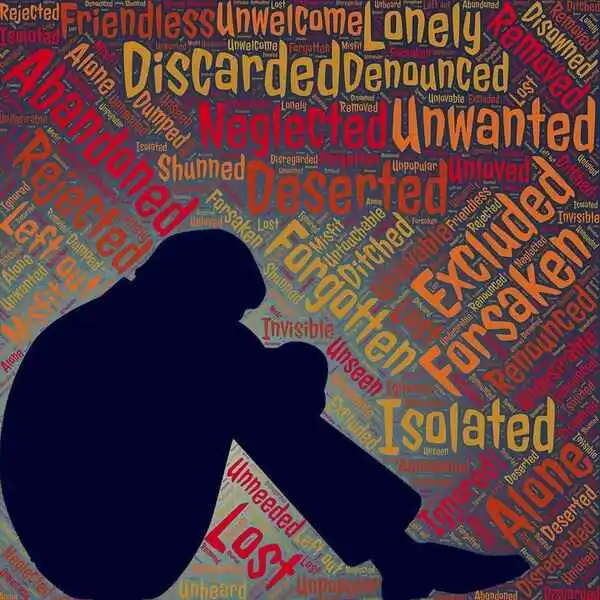Self-neglect is often reported when unusual or dangerous behaviors are noticed in a loved one. Since these behaviors develop gradually over months or years, friends and family might not initially recognize the changes as significant. Eventually, a specific event may highlight the presence of self-neglect.
Research and observations suggest that self-neglect does not have a single set of characteristics. Instead, there appear to be various types of self-neglect, which can be categorized in different ways.
Types of Self-Neglect
Historically, self-neglect (SN) has been categorized into three types: non-intentional (passive), intentional (active), and Diogenes Syndrome.
Non-Intentional Self-Neglect
Non-intentional (passive) self-neglect often results from poor health. For instance, mental conditions can cause confusion, leading individuals to neglect their personal and home care. Over time, this can result in dirty bodies and cluttered, filthy homes. The individual may not understand what is happening and does not actively choose to live in such conditions. Similarly, blindness from poorly controlled diabetes can lead to passive self-neglect.
Intentional Self-Neglect
Intentional (active) self-neglect occurs when an individual, despite being of sound mind and body, chooses to live in filth and dangerous conditions. They may refuse to bathe, take necessary medications, or maintain their home, even though they know they should. These decisions might be attempts to maintain control, lifestyle choices, personality traits, or reactions to the fear of being placed in a nursing home.
Diogenes Syndrome
Diogenes Syndrome, named after a 4th-century Greek philosopher, represents the most severe form of passive self-neglect and is associated with hoarding. Individuals with Diogenes Syndrome often have mental illnesses and certain personality traits, such as aloofness, which increase their risk. They live in extreme poverty-like conditions, often without running water or electricity due to neglecting maintenance or bill payments. Hoarding animals, trash, and rotting food is common. They refuse support and medical treatments, resulting in poor health, and often underestimate the dangers of their living conditions, keeping doors open and unlocked.
Read: Discover the Subtle Signs: Alzheimer’s Disease Symptoms, 5 Stages, Causes & Effective Treatments
What Causes Self-Neglect?
Identifying a single root cause for self-neglecting behaviors can be challenging. However, self-neglect can result from various factors, including:
- Brain injury, dementia, or other mental disorders
- Obsessive-compulsive disorder or hoarding disorder
- Physical illnesses that impact abilities, energy levels, attention span, organizational skills, or motivation
- Reduced motivation as a side effect of medication
- Addictions
- Traumatic life changes
Each of these factors can contribute to an individual’s inability to care for themselves, leading to self-neglect.
How to Recognize Self-Neglect
Physical Appearance
- Poor personal hygiene
- Inappropriate clothing for the weather
- Messy hair, nails, or clothes
- Unexplained weight loss
- Unusual odors
Nutrition
- Poor diet and nutrition
- Dehydration
Living Conditions
- Filthy home
- Neglected household maintenance
- Odd behaviors and lifestyles
- Hoarding animals and/or worthless items
- Dangerous living conditions
- Home infestations (e.g., mice, insects)
- Non-functioning utilities
- Rotten food
- Bad smells
- Threatened eviction
Health
- Not refilling medications
- Missing medical appointments
- Refusal to seek treatment for serious illnesses
- Decreased ability to perform daily activities
Behaviors
- Social isolation
- Refusing entry to service providers (e.g., utility workers, home health care providers, APS)
- Antisocial behavior / not getting along with others
- Dangerous forgetfulness (e.g., leaving a burning stove unattended)
- Not paying bills due to forgetfulness or clutter
Mental
- Decreased ability to reason
- Confusion
- Depression
- Psychosis, such as hallucinations
- Refusal to follow healthcare provider’s recommendations
Taking Care of Persons Suffering from Self-Neglect
Treatment for self-neglect involves addressing the underlying causes, whether it’s depression or a severe learning disability. Home care can be a good solution, with carers assisting in cleaning, dressing, or feeding the individual without compromising their independence or autonomy.
Establishing a trusting relationship with a person who is self-neglecting is crucial. Restricting their autonomy can be harmful, so it’s important to approach care with sensitivity and respect.




